


RIGHT TO THE STREETS:
ENABLING ACTIVE TRAVEL AND ACTIVE LIVES FOR WOMEN AND GIRLS IN TRAFFORD
Research (Community Interest Company)
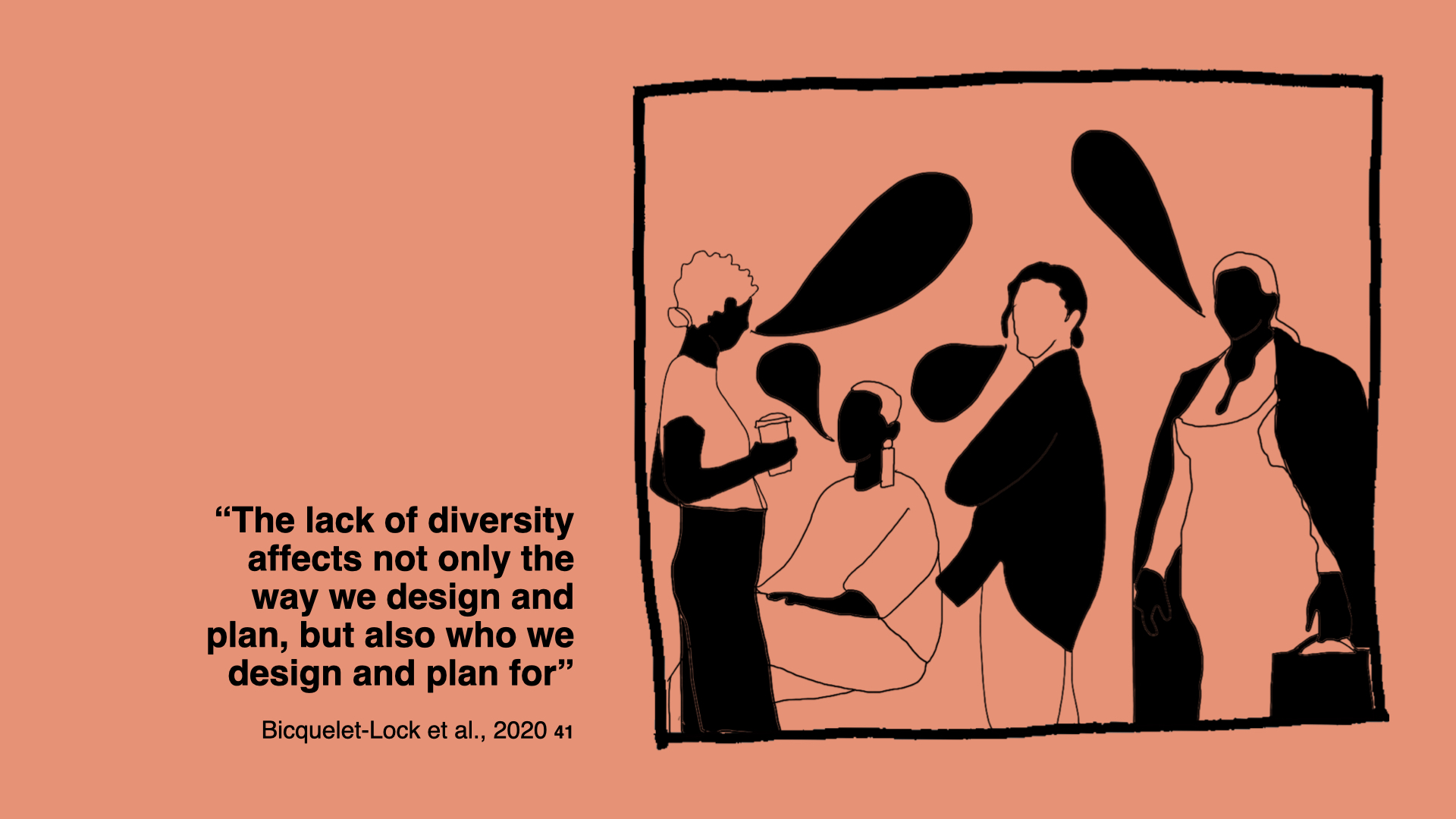
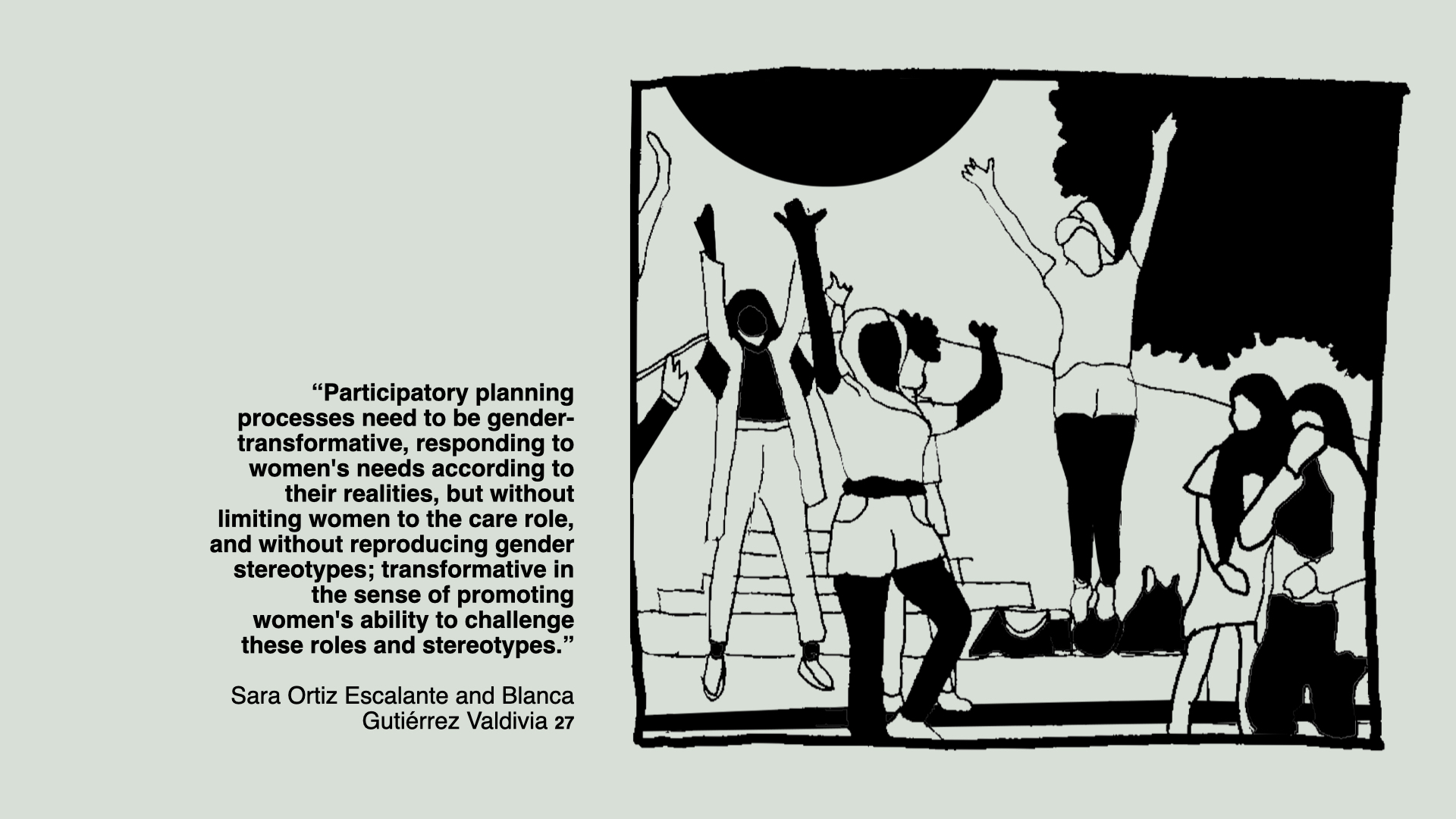
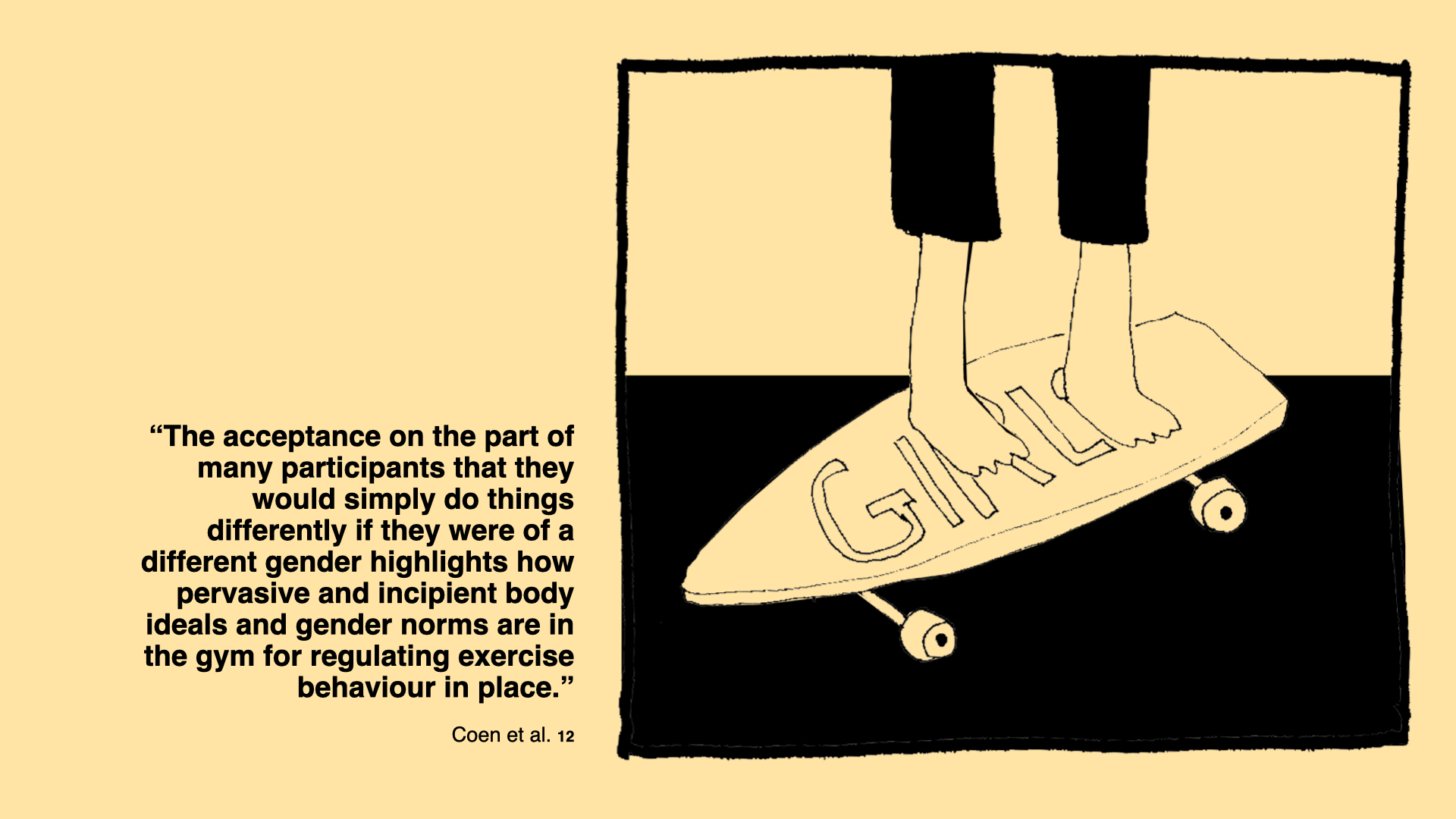

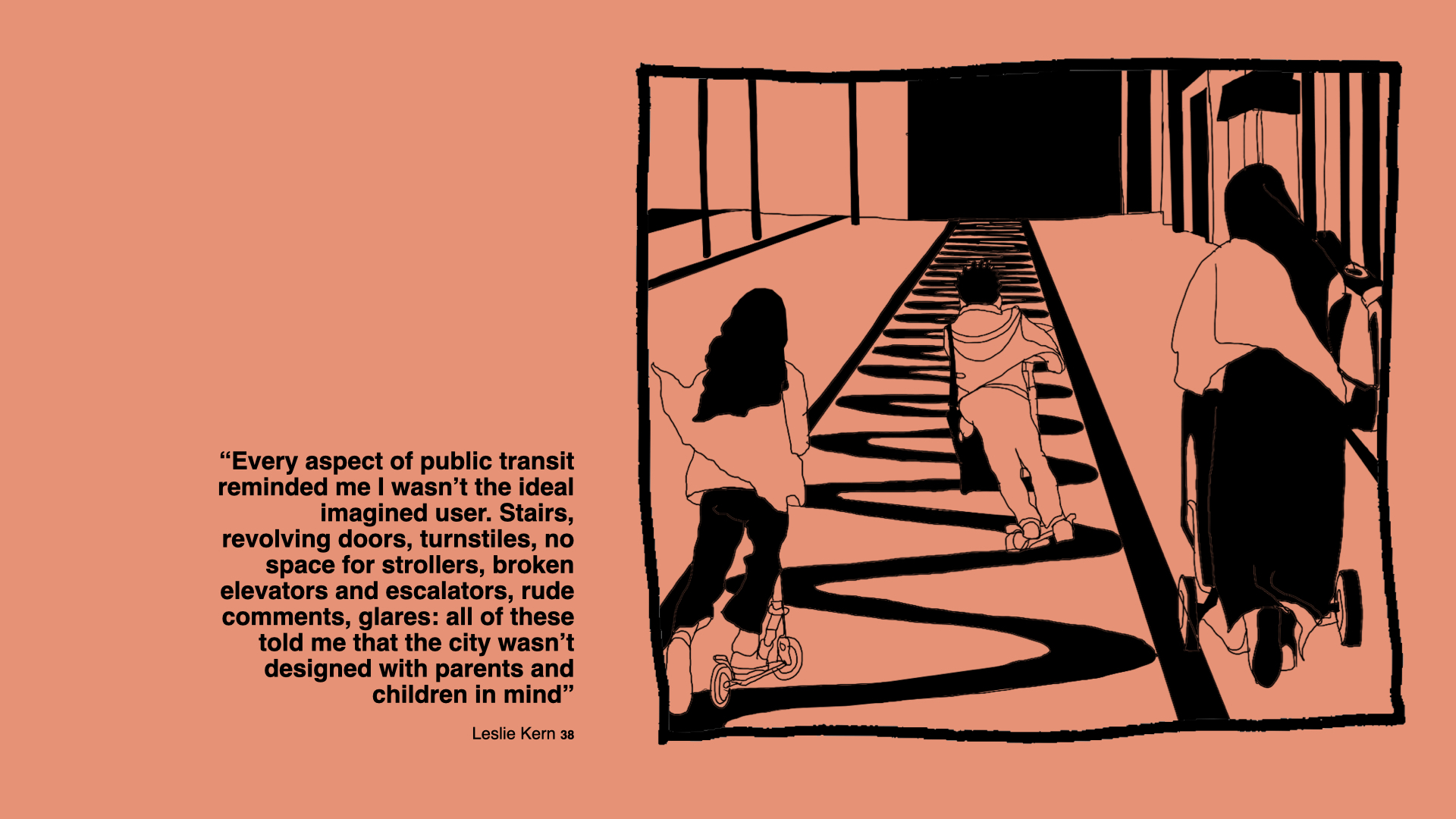
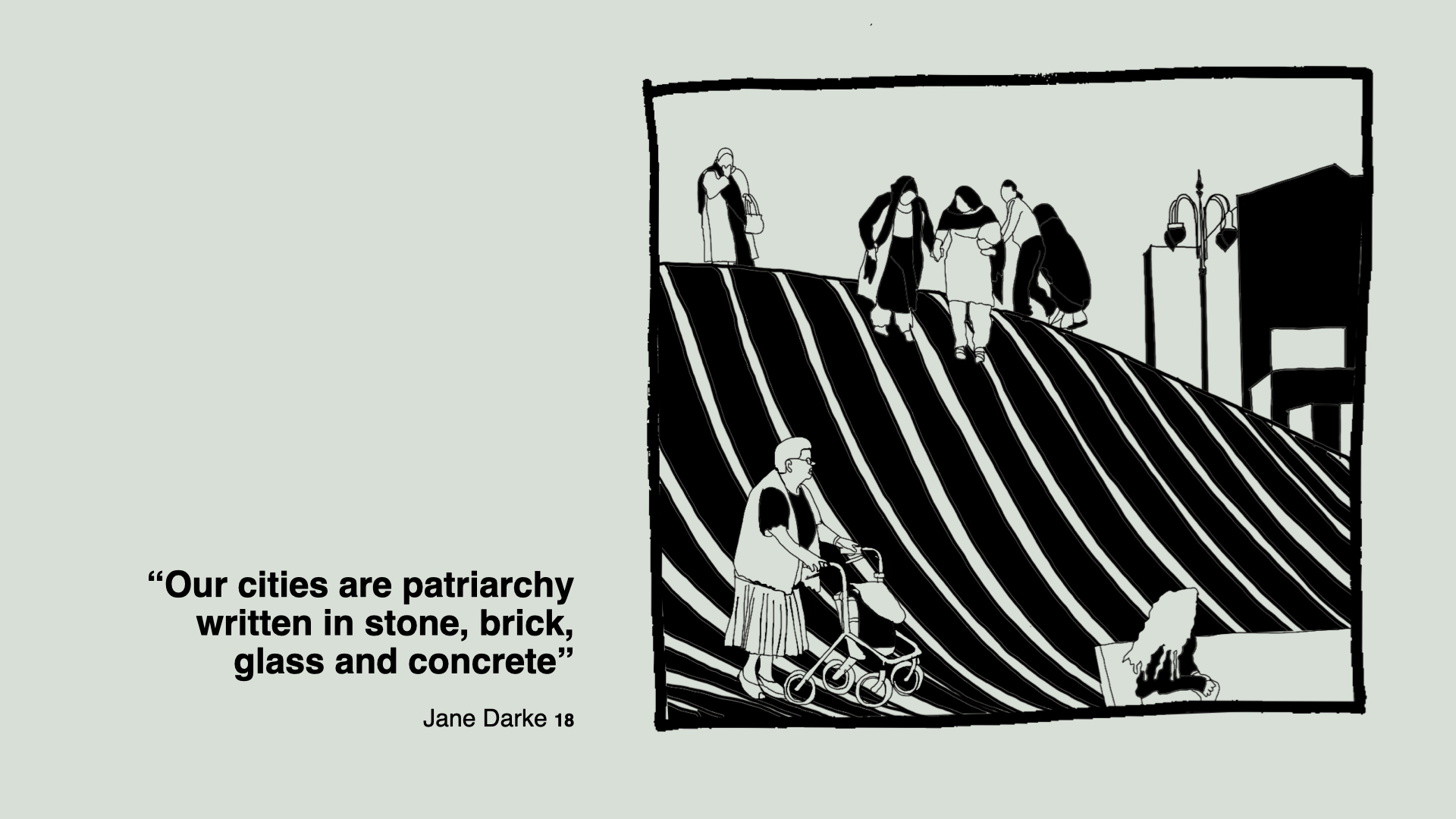

Year
2022-2023
Service
Research (CIC)
Client
Greater Manchester Sport
Location
Trafford, Manchester, UK
Context
We are working with Greater Manchester Moving, Open Data Manchester and Trafford Council on a Home Office funded ‘Safer Streets’ project to reduce violence against women and girls, and create inclusive, active streets and public spaces in Trafford. Active travel and active lives for women and girls is about so much more than women’s safety. It is about the liberty to have free and equal access to everything the city has to offer and to remove barriers of freedom of movement, active and healthy lives.
We were commissioned to conduct a targeted literature review on gender, mobility and active lives, that would draw on evidence to outline the core principles of gender inclusive urban design and the key challenges that need to be addressed. We were keen to collate existing resources and tools, to create something that could distil and describe practical steps project leaders and stakeholders can take to deliver gender inclusive streets.
Our literature review brings together years of feminist scholarship, research, and action. It is presented in the form of information postcards – which can be used as starting points for discussion, reflection, and action. These postcards provide practical tools to plan and design gender inclusive public spaces, and help equip project partners, designers, planners, policy makers and the wider community with in-depth knowledge to better understand public space through a gender lens.
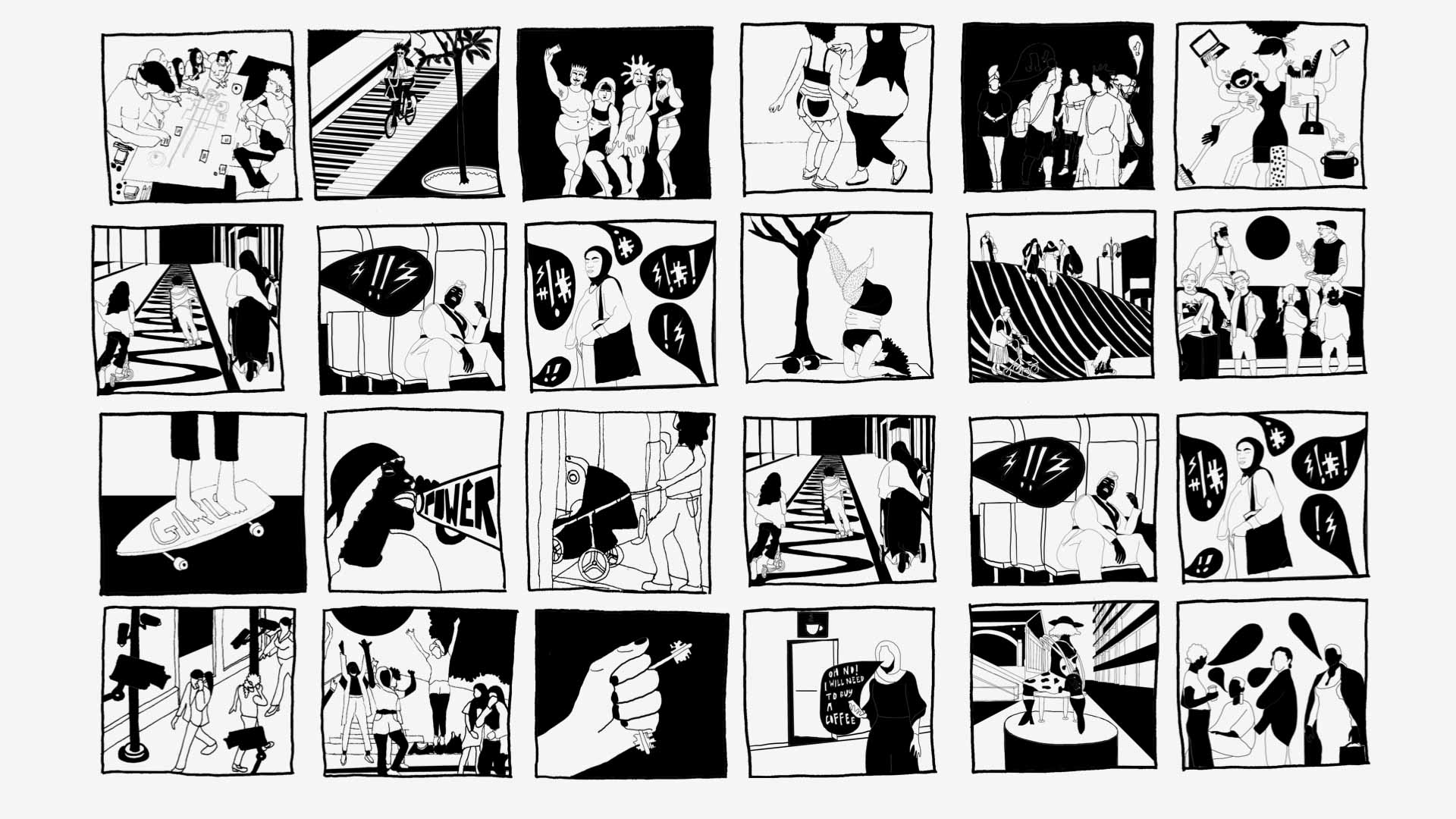
Process
Literature Review Postcards:
We were able to build on Greater Manchester Moving’s existing gender philosophy and Publica’s considerable body of literature in gender and urban design, to look for precedents and best practice case studies that are particularly relevant to the local Trafford context.
The starting point was intersectional. We wanted to support users to acknowledge and think across difference. But we also wanted to encourage understanding of how different forms of power intersect in the spaces we inhabit, dwell in and move through – thereby creating different experiences that need to be taken account of.
The literature review is divided into three key themes that were identified as being the most important for understanding women’s active lives:
1. Living an active Life
2. Living a safer life
3. Living where I belong
Each key theme is investigated through six-seven postcards which expand on literature, statistics and reflections responding to the questions that each theme raises.
Tools & case studies:
We created 19 postcards which illustrate tools used as guidance for practically addressing each theme: through projects, programmes, and initiative. Each postcard is accompanied by a case study showcasing best practice to bring the tool to life. The case studies showcase national and international precedents and capture, where possible, examples from Greater Manchester.
Imagination cards:
We created blank cards to address the need for imagination and knowledge-creation spaces. Using workshops and engagement sessions to improve, expand and iterate the literature is fundamental to nurturing the explorative and intersectional nature of the project. This approach allows for a continuous process of information and knowledge gathering.
Blank cards offer an opportunity for people using the card deck to explain what each theme means to them and add case studies that they already know about or that they have experienced.
Next Steps:
We are delighted to have been commissioned to develop these postcards further by devising a set of engagement activities, workshop resources and games that build on our literature review content. These resources will support a diversity of people in engaging with ideas around gender inclusion, and to understand what it means in their own lives and projects.
RIGHT TO THE STREETS:
ENABLING ACTIVE TRAVEL AND ACTIVE LIVES FOR WOMEN AND GIRLS IN TRAFFORD
Research (Community Interest Company)







Year
2022-2023
Service
Research (CIC)
Client
Greater Manchester Sport
Location
Trafford, Manchester, UK
Context
We are working with Greater Manchester Moving, Open Data Manchester and Trafford Council on a Home Office funded ‘Safer Streets’ project to reduce violence against women and girls, and create inclusive, active streets and public spaces in Trafford. Active travel and active lives for women and girls is about so much more than women’s safety. It is about the liberty to have free and equal access to everything the city has to offer and to remove barriers of freedom of movement, active and healthy lives.
We were commissioned to conduct a targeted literature review on gender, mobility and active lives, that would draw on evidence to outline the core principles of gender inclusive urban design and the key challenges that need to be addressed. We were keen to collate existing resources and tools, to create something that could distil and describe practical steps project leaders and stakeholders can take to deliver gender inclusive streets.
Our literature review brings together years of feminist scholarship, research, and action. It is presented in the form of information postcards – which can be used as starting points for discussion, reflection, and action. These postcards provide practical tools to plan and design gender inclusive public spaces, and help equip project partners, designers, planners, policy makers and the wider community with in-depth knowledge to better understand public space through a gender lens.

Process
Literature Review Postcards:
We were able to build on Greater Manchester Moving’s existing gender philosophy and Publica’s considerable body of literature in gender and urban design, to look for precedents and best practice case studies that are particularly relevant to the local Trafford context.
The starting point was intersectional. We wanted to support users to acknowledge and think across difference. But we also wanted to encourage understanding of how different forms of power intersect in the spaces we inhabit, dwell in and move through – thereby creating different experiences that need to be taken account of.
The literature review is divided into three key themes that were identified as being the most important for understanding women’s active lives:
1. Living an active Life
2. Living a safer life
3. Living where I belong
Each key theme is investigated through six-seven postcards which expand on literature, statistics and reflections responding to the questions that each theme raises.
Tools & case studies:
We created 19 postcards which illustrate tools used as guidance for practically addressing each theme: through projects, programmes, and initiative. Each postcard is accompanied by a case study showcasing best practice to bring the tool to life. The case studies showcase national and international precedents and capture, where possible, examples from Greater Manchester.
Imagination cards:
We created blank cards to address the need for imagination and knowledge-creation spaces. Using workshops and engagement sessions to improve, expand and iterate the literature is fundamental to nurturing the explorative and intersectional nature of the project. This approach allows for a continuous process of information and knowledge gathering.
Blank cards offer an opportunity for people using the card deck to explain what each theme means to them and add case studies that they already know about or that they have experienced.
Next Steps:
We are delighted to have been commissioned to develop these postcards further by devising a set of engagement activities, workshop resources and games that build on our literature review content. These resources will support a diversity of people in engaging with ideas around gender inclusion, and to understand what it means in their own lives and projects.